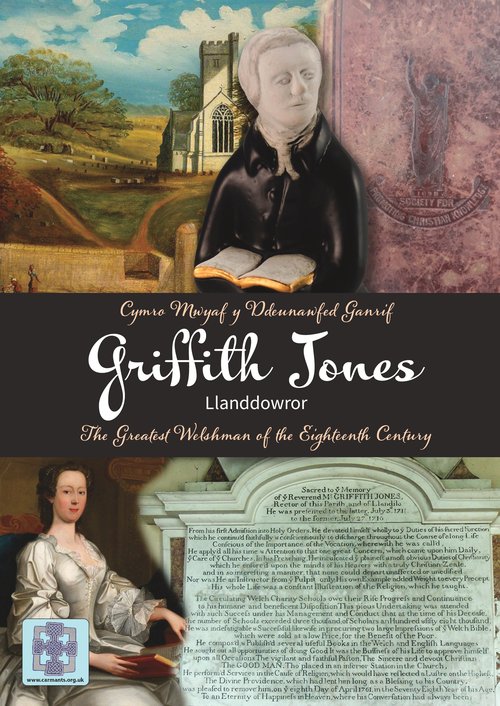An unsung Welsh hero

GRIFFITH JONES: The Greatest Welshman of the Eighteenth Century
Publisher: Carmants 2023
ISBN: 978-0-906972007
Price: £5 from Carmarthenshire Antiquarian Society [https://carmants.org.uk/publications.html]
If one was to ask the average person what the name Griffith Jones meant to them, alas, the response would probably be very disappointing and, in all probability, many would not have heard of him. This is particularly sad as not only is Jones one of the unsung heroes of our diocese, but we are referring to a man who has been described as the greatest Welshman of the Eighteenth Century. So what exactly did he do to deserve such a title?
The answer is clearly and neatly laid out in a booklet written by Peter Stopp and published by the Carmarthenshire Antiquarian Society as part of their Carmarthenshire Enlightenment Project.
The booklet is set out in a chronological format which first of all sets the scene of the Wales within which Jones’ life was lived. Born into rather humble circumstances at Penboyr in 1683, it examines his early life, before moving on to look at his career as a cleric, renowned as a preacher and an educational pioneer who, from his base at Llanddowror, helped to transform Wales into one of the most literate nations in Europe.
This was achieved by the establishment of his renowned Circulating Schools, the fame of which reached the ears of Catherine the Great of Russia. Not being a rich man himself, the booklet examines the sponsors who allowed him to carry on his ambitious work, including the S.P.C.K., Sir John Philipps of Picton Castle and then Madam Bridget Bevan who carried on Jones’ work after his death in 1761.
Other themes examined include his impact upon the Welsh language, his influence upon the Welsh printing industry and his contribution to the quickening pace of the religious life of Wales in the Eighteenth Century both within the Anglican Church as well as the impetus he gave to the early Methodist Fathers.
The booklet has been exceptionally well researched, is full of relevant facts without smothering the reader with detail and, where pertinent, there are relevant illustrations. The text is very readable and there is no need for an in-depth knowledge of the period to understand the contribution Griffith Jones made to the life of the nation. And at a time of rising prices, it is a bargain at a mere £5!
Richard Davies